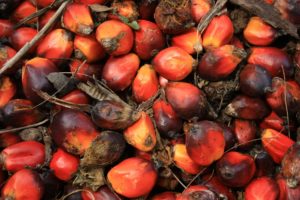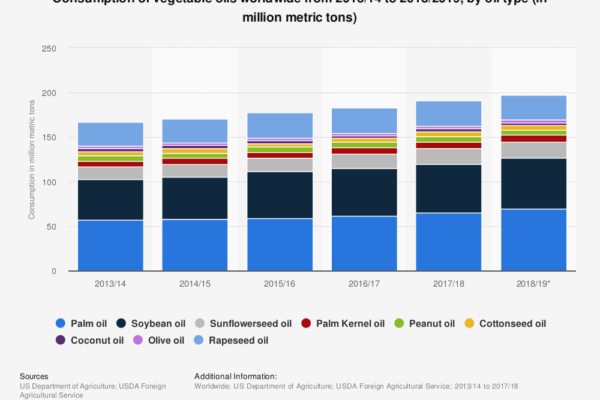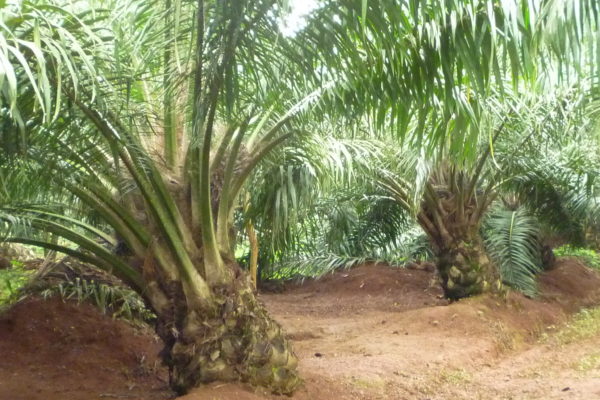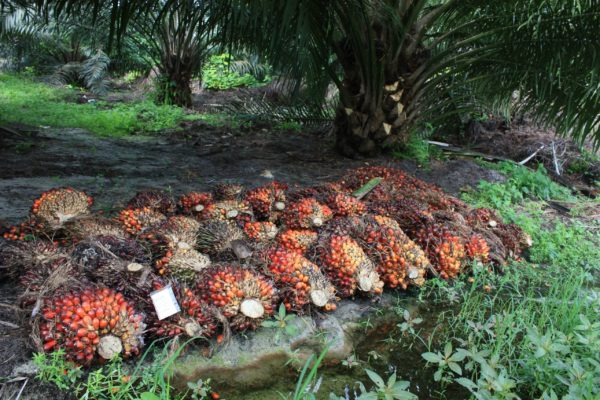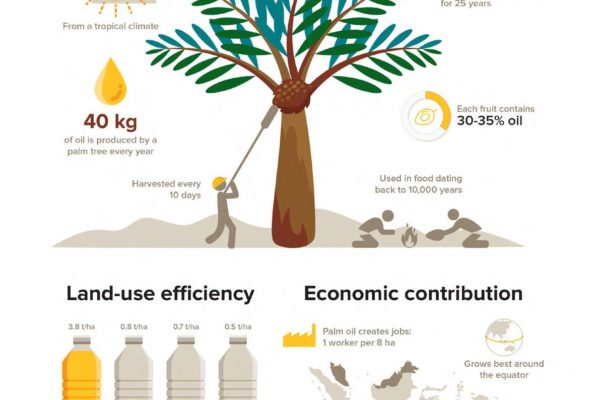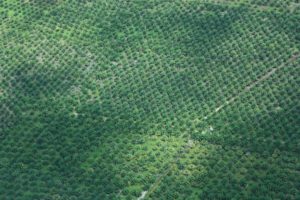
Oil palm plantation in South Sumatra
Producers of palm oil have come under scrutiny as huge swathes of primary forests have been cleared for both industrial-scale plantations and small holdings. In some areas this deforestation also displaced local communities, and, in some plantations, worker’s rights have been ignored. It is this deforestation in Sumatra and Malaysia that is threatening tiger habitat at an alarming rate. The drainage of peat swamps in Sumatra for plantations has an impact on greenhouse gas emissions, as large amounts of carbon dioxide are released in the process.
Many growers burn their land to clear it resulting in the dangerous smoke haze regularly reported in the media. The fires, especially on peat, produce a considerable amount of smoke and toxic compounds which have a negative impacts on people and wildlife.
Sustainable Palm Oil
In response to the destructive force of palm oil production and with pressure from concerned consumers, NGOs and conservation scientists, a growing number in the palm oil industry have committed to adopting more wildlife-friendly practices. Certification schemes have developed to identify these products. One of the more well known is the Round Table for Sustainable Palm Oil (RSPO), established 2004 to promote best practice, environmental responsibility and engage stakeholders such as mills and manufacturers.
For producers working in High Conservation Value (HCV) landscapes, much can be done to conserve biodiversity. A key requirement for producers wanting certification is mitigating adverse impacts on HCV species and habitats. Certification in Indonesia, requires plantings since 2005 having not replaced primary forest, introducing buffer zones and wildlife corridors and specific species protection methods. In doing so, these allow better access to ground cover, food and unpolluted water. Certification also requires producers to have transparent supply chains, to mitigate carbon emissions, to limit planting on peatlands and to respect worker’s rights.
In 2017, around 19–20% of all global palm oil production was certified by the RSPO.*
Certification however, is not without its problems and its critics. Standards for sustainability certification are constantly developing but it is complex and issues include how HCV land is identified, accurate tracing of supply chains, monitoring, reporting and the verifying of corporate commitments remains inconsistent. Corporate commitments to transitioning to certified products have to be backed up by action.
Government policy
It’s not just certification that can push this industry towards better stewardship of the tropical landscape. In 2011, Indonesia implemented both a deforestation moratorium and a national mandatory certification scheme. In Malaysia, the Malaysian Sustainable Palm Oil (MSPO) system introduced in 2012 aims for all producers within the country to comply with the federal and state laws. Nevertheless, compliance to these schemes is not always thoroughly policed.
